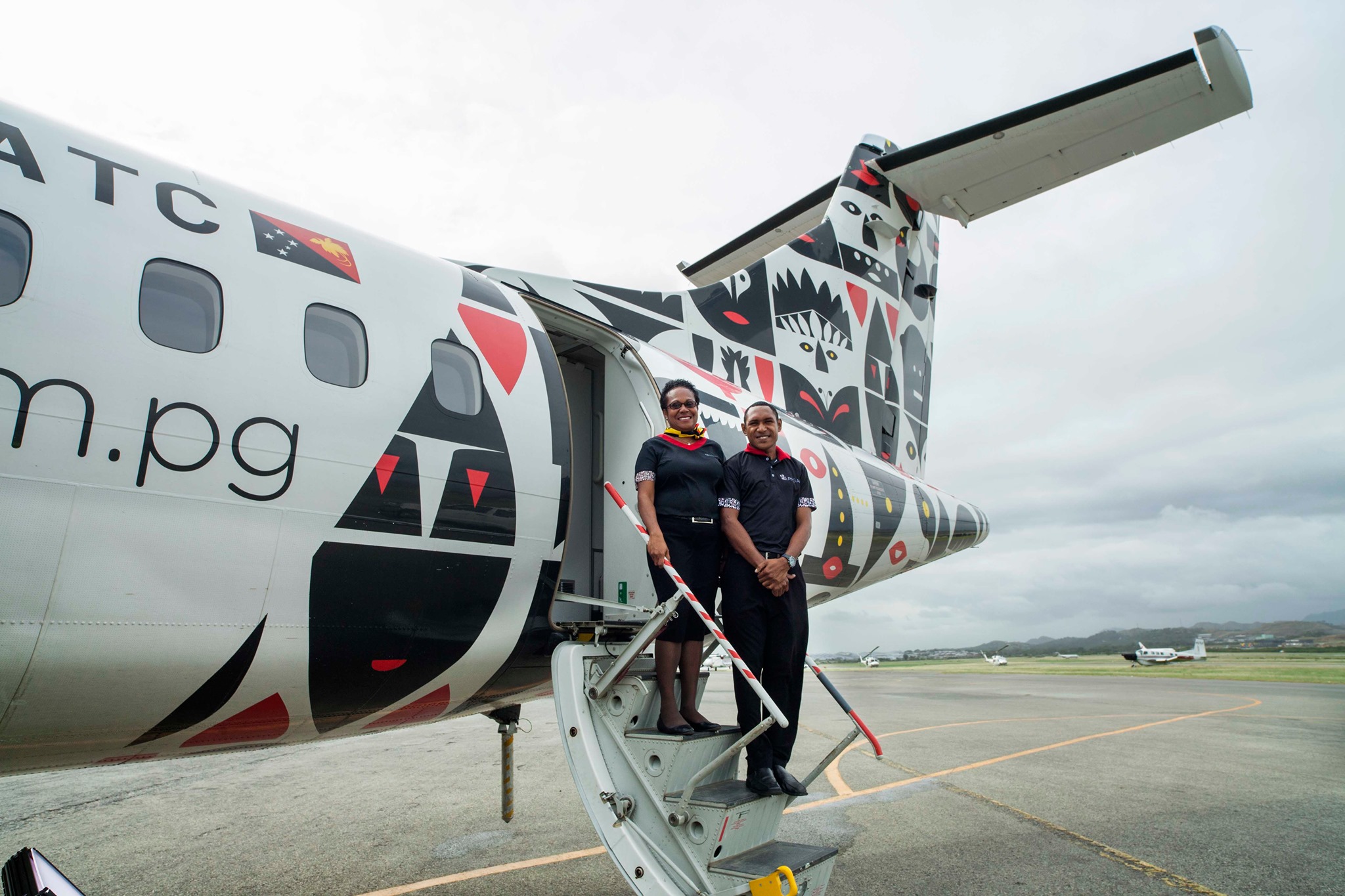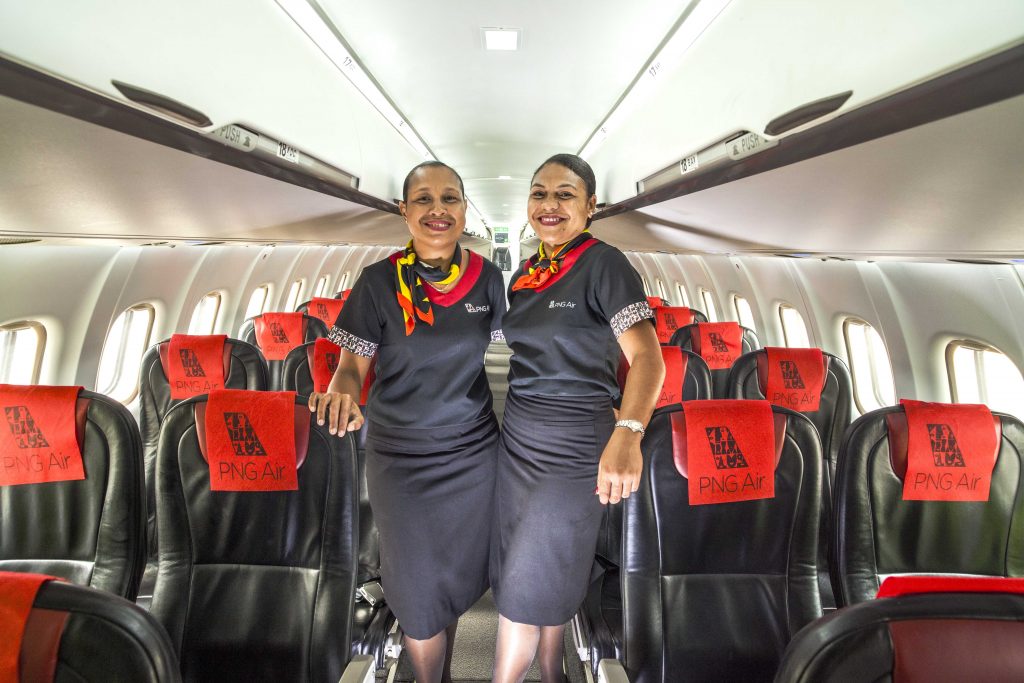Your Comfort and Care
At PNG Air, your safety and comfort are our top priorities. Our crew is committed to making sure you enjoy a safe, relaxed journey, whether you are traveling for business or leisure.
Seatbelt Safety
For your protection, please keep your seatbelt fastened whenever you are seated, especially when the seatbelt sign is illuminated. This helps protect you in the event of unexpected turbulence.
If you wish to stretch or walk around the cabin, please wait until the seatbelt sign is switched off and confirm with our cabin crew that it is safe to do so.
Staying Hydrated
Air travel can cause dehydration, so it’s important to drink plenty of water, juice, or soft drinks throughout your journey. Try to limit coffee, tea, and alcohol, as these can increase dehydration.
Our flight attendants are available to provide assistance and refreshments at any time.


Ear Discomfort and popping
You may notice your ears “popping” during take-off or landing as cabin pressure adjusts. To ease the discomfort:
- Swallow, yawn, or chew gum
- Suck on a lolly (candy) to help balance ear pressure
Preventing DVT (Deep Vein Thrombosis)
DVT occurs when blood clots form in a vein, most commonly in the legs, due to prolonged inactivity. Certain people are at higher risk, including those with a history of DVT, recent surgery, some blood disorders, smokers, pregnant women, people with heart disease, and the elderly.
Tips to Reduce Risk
- Drink plenty of water and stay hydrated
- Limit alcohol, coffee, and tea during the flight
- Walk around the cabin when possible and stretch regularly
- Avoid crossing your legs for long periods
- Massage your calves and thighs, move your ankles in circles, and gently shake your feet to promote circulation.
If you experience unusual swelling, tenderness, or pain after your flight, we recommend seeing your doctor immediately.
This is not a comprehensive list. If you have any doubts about your particular health risks, you should talk to your medical practitioner before flying.
